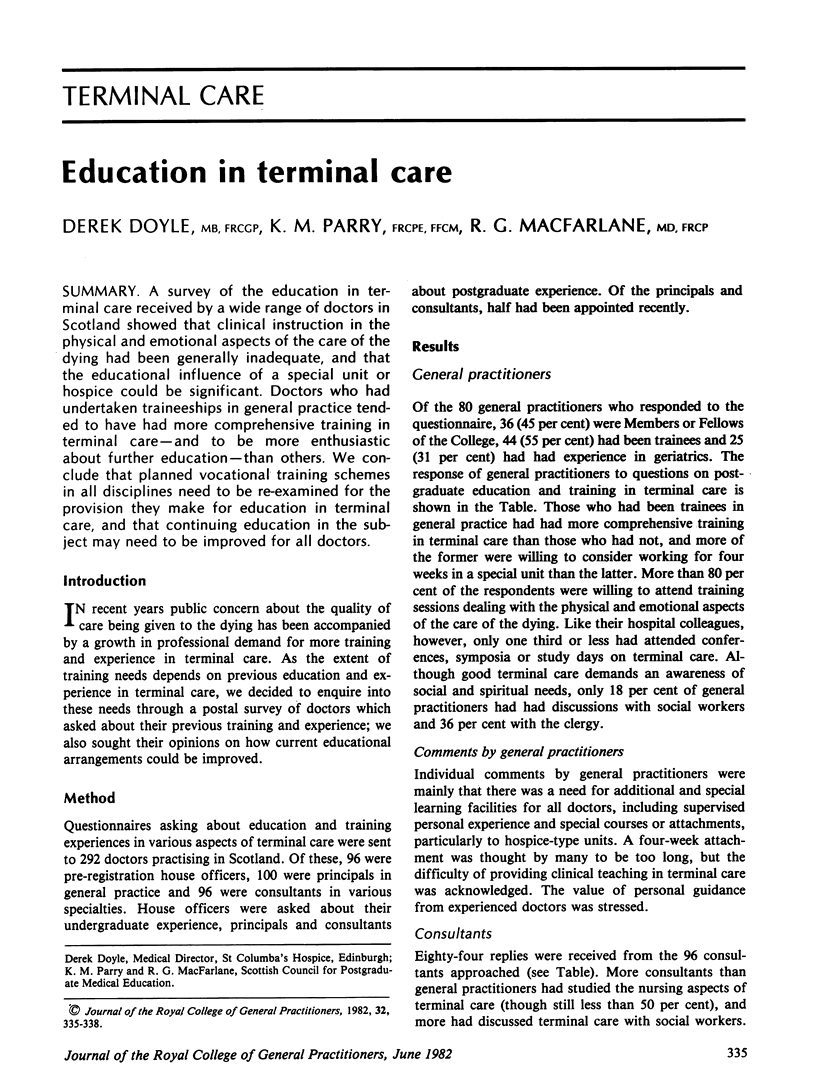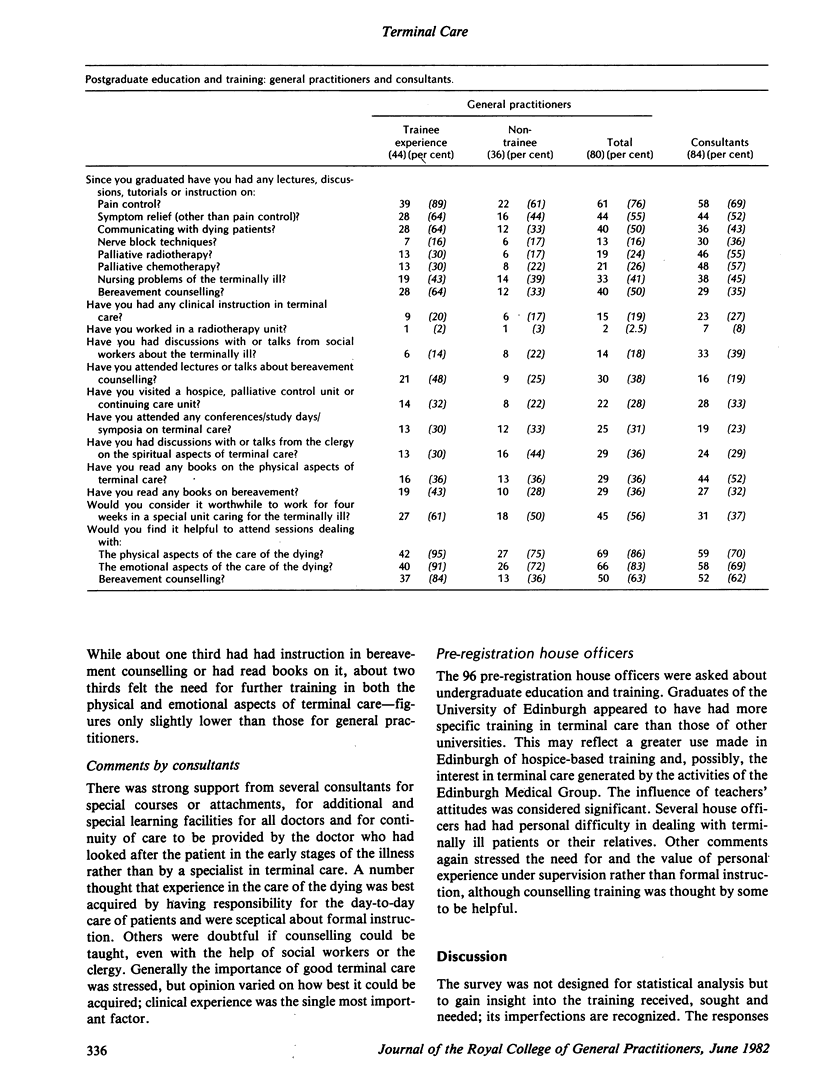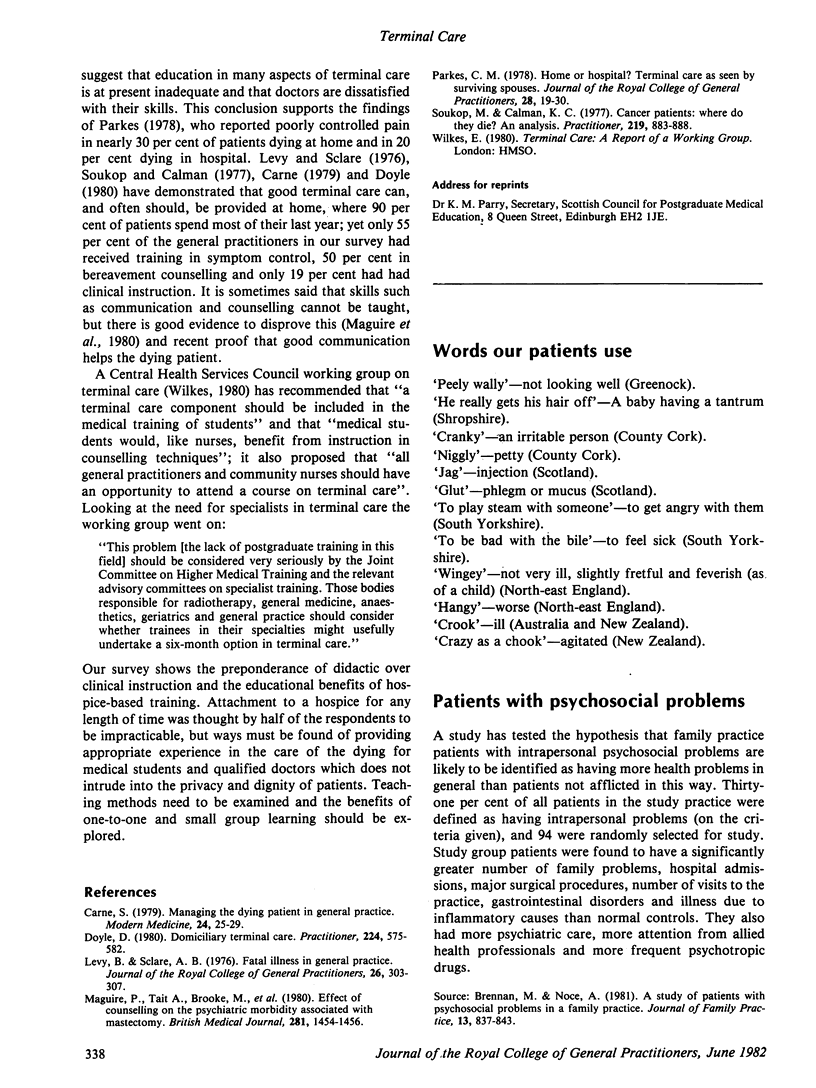Abstract
A survey of the education in terminal care received by a wide range of doctors in Scotland showed that clinical instruction in the physical and emotional aspects of the care of the dying had been generally inadequate, and that the educational influence of a special unit or hospice could be significant. Doctors who had undertaken traineeships in general practice tended to have had more comprehensive training in terminal care—and to be more enthusiastic about further education—than others. We conclude that planned vocational training schemes in all disciplines need to be re-examined for the provision they make for education in terminal care, and that continuing education in the subject may need to be improved for all doctors.
Full text
PDF


Selected References
These references are in PubMed. This may not be the complete list of references from this article.
- Doyle D. Domiciliary terminal care. Practitioner. 1980 Jun;224(1344):575–582. [PubMed] [Google Scholar]
- Levy B. Fatal illness in general practice. J R Coll Gen Pract. 1976 Apr;26(165):303–307. [PMC free article] [PubMed] [Google Scholar]
- Maguire P., Tait A., Brooke M., Thomas C., Sellwood R. Effect of counselling on the psychiatric morbidity associated with mastectomy. Br Med J. 1980 Nov 29;281(6253):1454–1456. doi: 10.1136/bmj.281.6253.1454. [DOI] [PMC free article] [PubMed] [Google Scholar]
- Parkes C. M. Home or hospital? Terminal care as seen by surviving spouses. J R Coll Gen Pract. 1978 Jan;28(186):19–30. [PMC free article] [PubMed] [Google Scholar]


